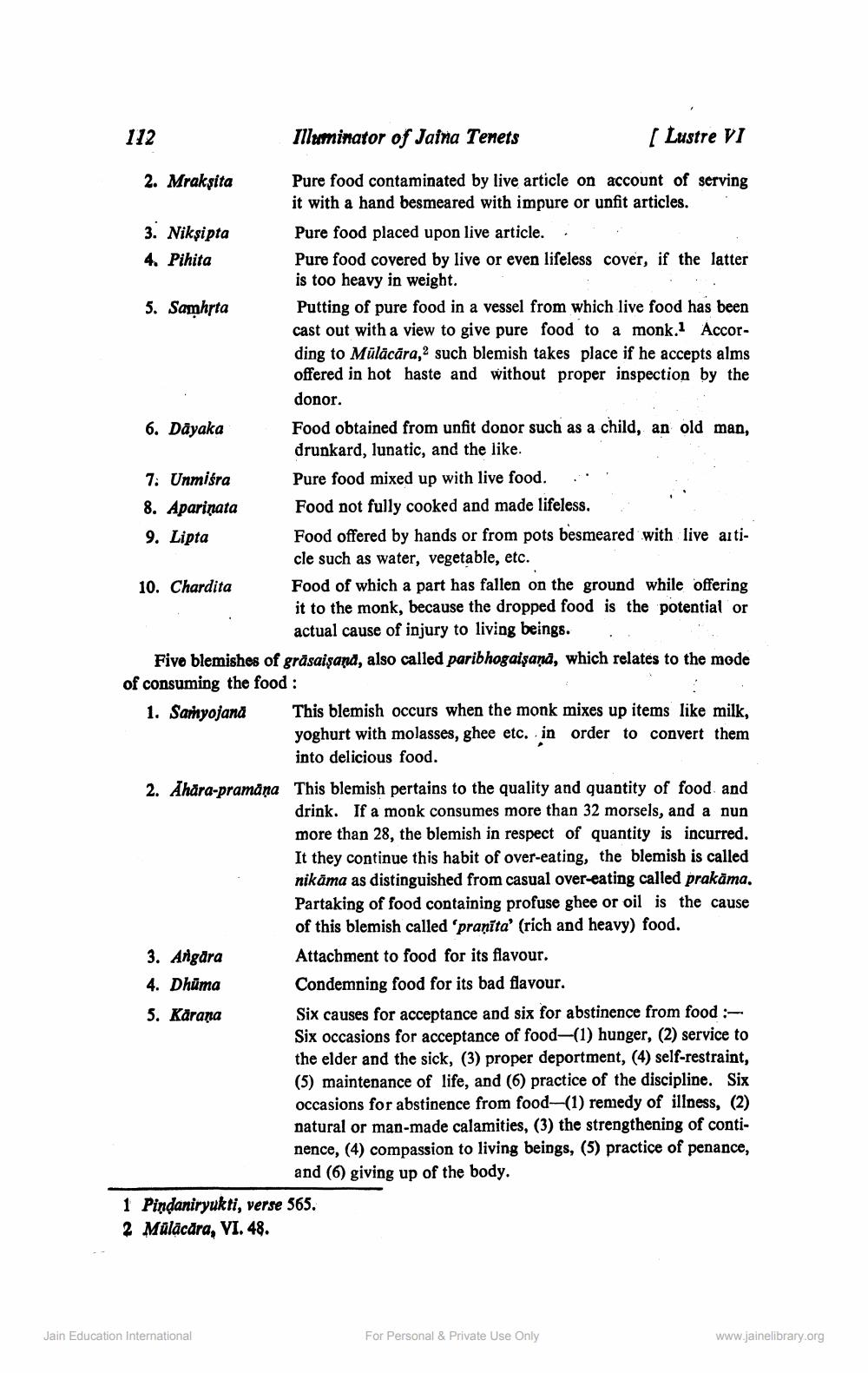________________
112
Illuminator of Jaina Tenets
[ Lustre VI
2. Mrakṣita Pure food contaminated by live article on account of serving
it with a hand besmeared with impure or unfit articles. 3. Nikşipta Pure food placed upon live article. 4. Pihita
Pure food covered by live or even lifeless cover, if the latter
is too heavy in weight. 5. Samhsta Putting of pure food in a vessel from which live food has been
cast out with a view to give pure food to a monk. According to Mülācāra, such blemish takes place if he accepts alms offered in hot haste and without proper inspection by the
donor. 6. Dayaka Food obtained from unfit donor such as a child, an old man,
drunkard, lunatic, and the like. 7. Unmiśra Pure food mixed up with live food. ..! 8. Aparinata Food not fully cooked and made lifeless. 9. Lipta
Food offered by hands or from pots besmeared with live anti
cle such as water, vegetable, etc. 10. Chardita Food of which a part has fallen on the ground while offering
it to the monk, because the dropped food is the potential or
actual cause of injury to living beings. Five blemishes of gräsaişand, also called paribhogaişand, which relates to the mode of consuming the food : 1. Sariyojana This blemish occurs when the monk mixes up items like milk,
yoghurt with molasses, ghee etc. in order to convert them
into delicious food. 2. Ahāra-pramäņa This blemish pertains to the quality and quantity of food and
drink. If a monk consumes more than 32 morsels, and a nun more than 28, the blemish in respect of quantity is incurred. It they continue this habit of over-eating, the blemish is called nikāma as distinguished from casual over-eating called prakāma, Partaking of food containing profuse ghee or oil is the cause
of this blemish called 'pranīta' (rich and heavy) food. 3. Angara Attachment to food for its flavour. 4. Dhūma Condemning food for its bad flavour. 5. Karana Six causes for acceptance and six for abstinence from food :
Six occasions for acceptance of food-(1) hunger, (2) service to the elder and the sick, (3) proper deportment, (4) self-restraint, (5) maintenance of life, and (6) practice of the discipline. Six occasions for abstinence from food-(1) remedy of illness, (2) natural or man-made calamities, (3) the strengthening of continence, (4) compassion to living beings, (5) practice of penance,
and (6) giving up of the body. 1 Pindaniryukti, verse 565. 2 Mülācāra, VI. 48.
Jain Education International
For Personal & Private Use Only
www.jainelibrary.org




